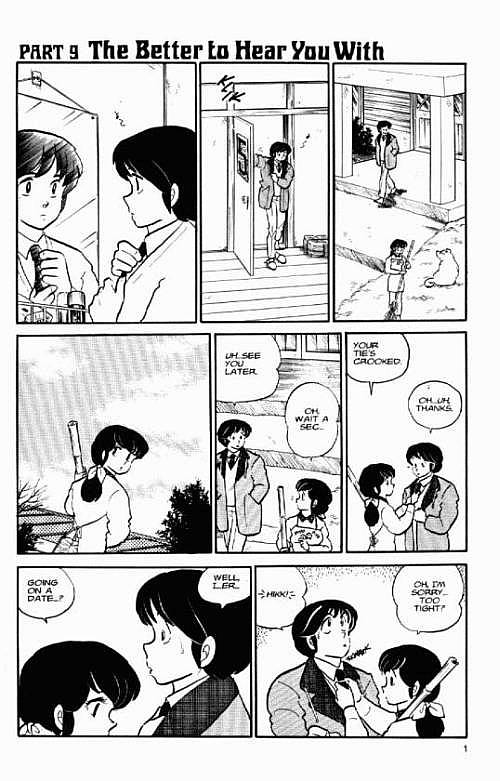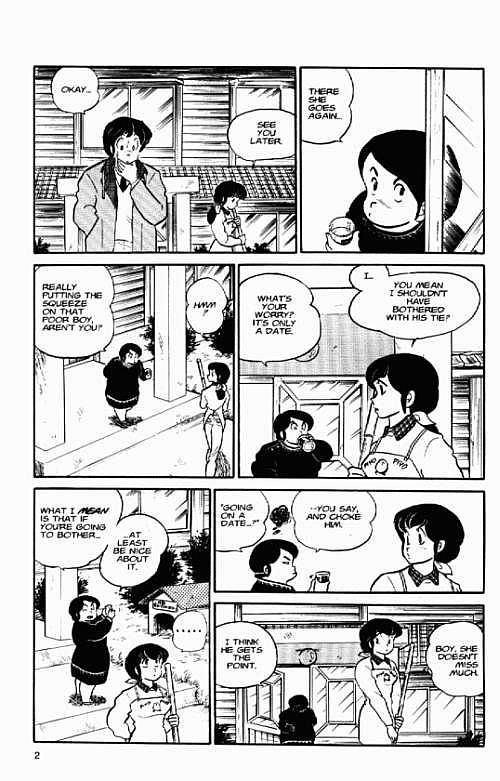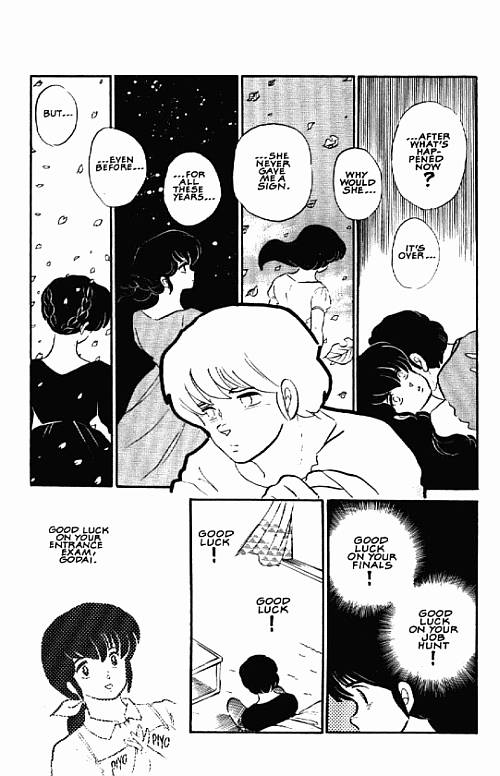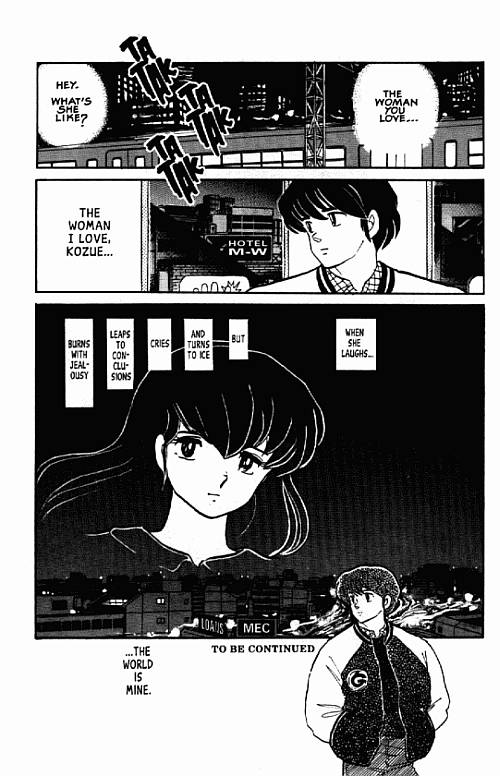I should be flying back to Sydney as we speak, so let me take this opportunity to recommend some vintage manga this week, namely Maison Ikkoku, by the best-selling female manga artist in the world, Rumiko Takahashi.
Now, I would recommend all of Rumiko Takahashi’s work, since her work is almost an institution in Japan, but I settled on Maison Ikkoku simply because it’s the most balanced of all her long-running series (and there are quite a few of them). It’s also one of her older works, with a different tone to her latest ones, which seems geared to a younger audience.
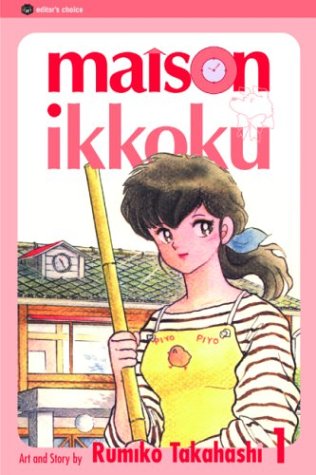 Maison Ikkoku (Rumiko Takahashi) 15 Volumes
Maison Ikkoku (Rumiko Takahashi) 15 Volumes
Maison Ikkoku was one of the first manga translated into English by Viz, and Rumiko Takahashi’s work remains one of the first manga to be exposed to Western audiences. Her work gained a huge following in the states (and in other countries) years before TOKYOPOP ever came to be. Apart from Doraemon, her Urusei Yatsura was among one of the first manga I’ve ever read. Her career spans over 40 years, and she has sold millions and millions of books worldwide. She is, hands down, the most prolific and best-selling female manga artist ever to have lived.
Plot
Maison Ikkoku is the name of a run-down, cheap boarding house, where the residents are either broke or crazy. The building is divided into a number of rooms (with no private bathrooms), and in room number 5 lives Yusaku Godai, a ronin, described in Japan as a college applicant who has yet to successfully pass the entrance exams. Godai is a nice guy (if a bit of a loser), and constantly tormented by his crazy neighbours, who thinks the sole purpose of his existence is for them to hold loud, drunk parties in his room.
Godai’s had enough. He was about to move out of the building, when a new manager moves in – an extremely beautiful young woman named Kyoko Otonashii. Since Kyoko will be living at the boarding house as its manager, Godai decides to stay – having fallen in lust at first sight with Kyoko. Kyoko herself is a gentle, caring woman with a quick temper, and the residents quickly discover that she’s actually a widow, who had married her high school teacher as a student. Kyoko is still deeply in love with her late husband, and as Godai gets to know her better, he falls in love with her. However, the road to love isn’t so easy for these two – Godai barely scrapes into unversity, and Kyoko has other suitors. Misunderstandings and the hijinks of the neighbours also make any kind of intimacy difficult. Will Godai succeed in winning Kyoko’s heart?
Why I Recommend this Story
Ofcourse Godai marries Kyoko at the end. You don’t write a 15-volume dramedy asking the readers to sympathise with the underdog hero, and then snatch the prize away in the last volume. People would be so angry. Having rooted for Godai and Kyoko for literally years of their lives, watching as Godai gets into college, almost flunks out of college, eventually graduates, attempts to find a job, fails due to bad luck, tries again, and eventually succeeds… wow, the world sure doesn’t make it easy for Godai. Unlike other manga heroes, who seem to naturally fall into leadership roles, possesses special powers, or at least has an an interesting personality or quest to go on, Godai is remarkably ordinary and average. Heck, I would say he’s below average. He struck it lucky with Kyoko.
Which is the whole point of Maison Ikkoku, a funny, poignant story about how the underdog finally wins the day. Finally. Compared to Takahashi’s other more well-known series, like Urusei Yatsura or Ranma 1/2 or even Inuyasha, the trials and tribulations of Godai seems utterly benign. While the story has its fair share of entertaining weirdos, it doesn’t have half the bombast or physical comedy of her other works – and Takahashi is mostly known for her loud, in-your-face, laff-a-minute comedy. No, this story is more rooted in reality than many of her other series, and that’s what makes it stand out. Godai eats cheap food, lives in a crappy place with crappy neighbours, constantly has money worries, ends up working in some dodgy places to make money, and constantly has to fight for almost everything he has. No need for aliens, gender-bending martial artists or monsters to spice things up. Life itself is a struggle enough, and it’s good to see a funny manga that is so rooted in a small moments of day to day life.
The romance between Godai and Kyoko is one that sticks in my mind – they’re both complex and emotional people with a lot of baggage. Kyoko feels she’s betraying her dead husband, and Godai feels he’ll never be good enough for Kyoko; often comparing himself to her late husband and her other suitors. These two drag themselves, kicking and screaming, to the inevitable final conclusion. When all is said and done, it’s a relief to see them finally acknowledge their feelings to each other. They get a lot of help (and hindrance) from Godai’s wacky neighbours, an assortment of working-class types, all of whom have sharply drawn personalities, and are always entertaining. Especially Yotsuya, the guy in room 4, who may or may not have a job, and whose life involves slithering like a snake into Godai’s room to steal food. Some of their antics have to be seen to be believed.
A Takahashi manga is always worth a read, because she’s a powerful story-teller who never fails to make you sympathise with her characters, and capable of finding comedy in the most mundane situations. Maison Ikkoku is a good place to start, as an introduction to her work (most of which is a lot whackier than this story). She excels in ensemble casts, taking extra care in the way they interact with each other, and despite the large numbers of secondary and tertiary characters, always manages to make them interesting and relevant. Her long-running series has a tendency to drag in the middle, and Maison Ikkoku is no exception, but the story ends the way it should end, and loose ends are neatly tied off. Her work is often light-hearted, with great comic timing, a fair amount of Japanese cultural references, and is always memorable.
Takahashi was one of the manga artists I tried to imitate when I was younger, and eventually gave up at, because I realised her voice was unique and inimitable. Even though I don’t follow her current work much, like some other manga artists I’ve recommended on my site, she’s a master worth learning from.

